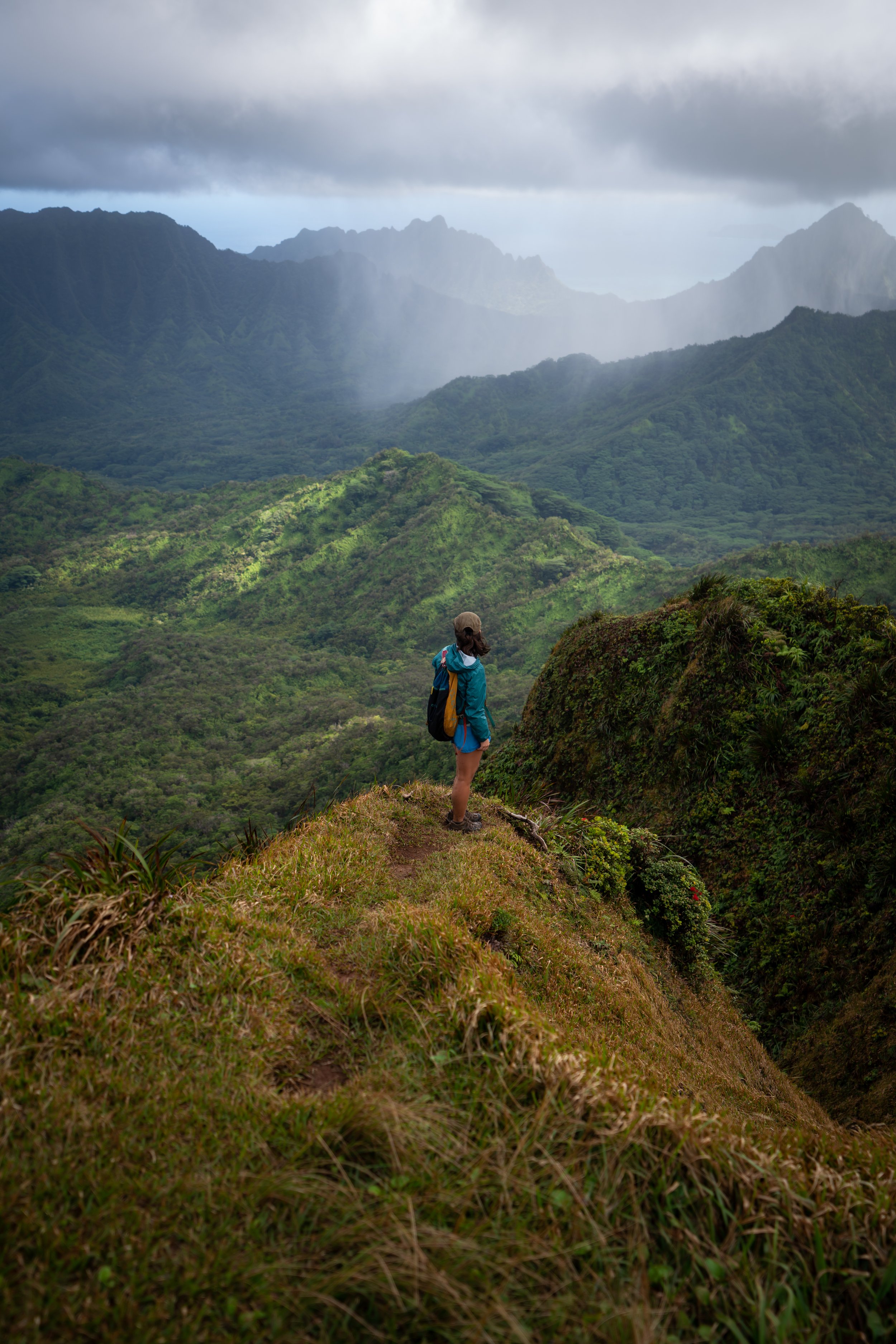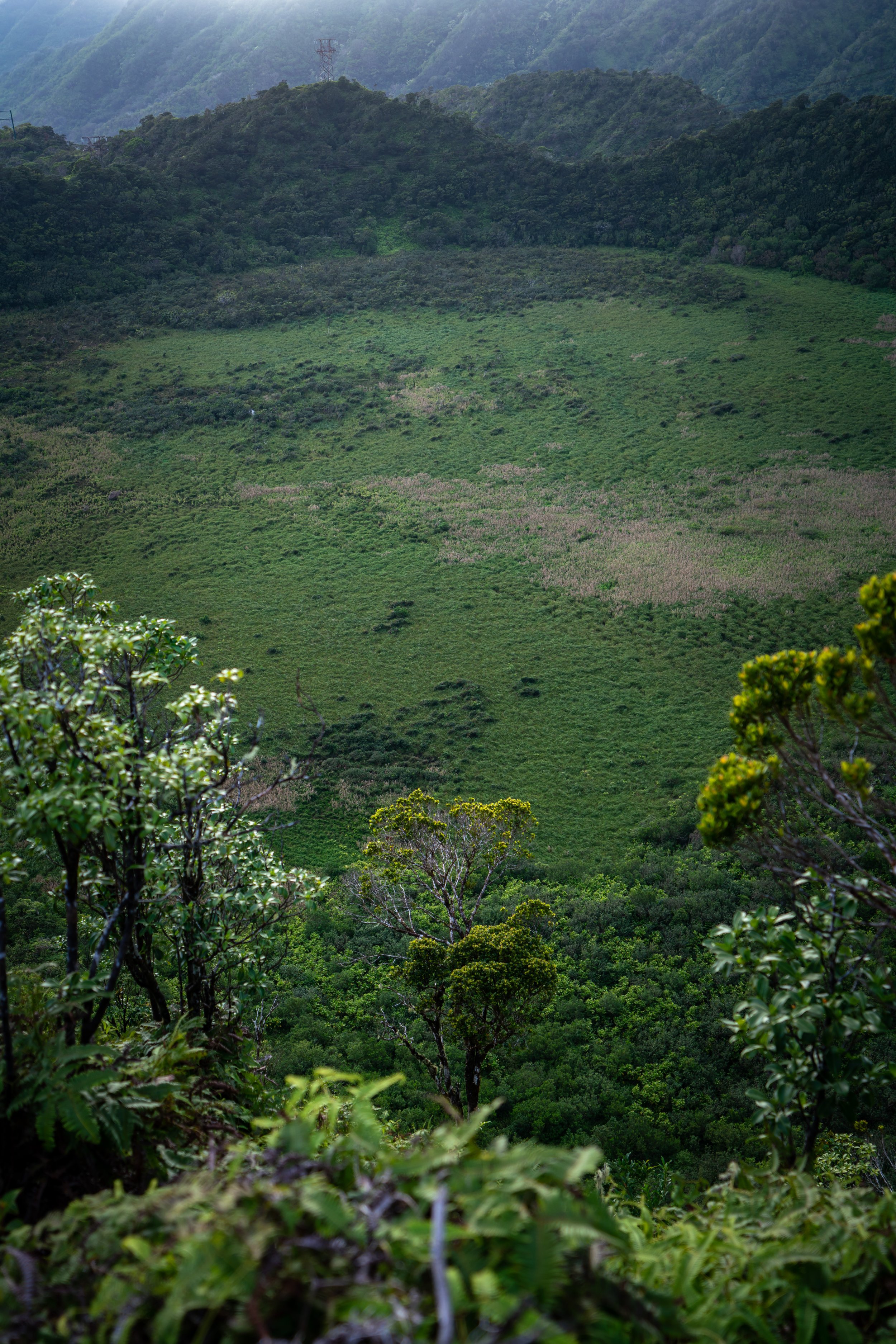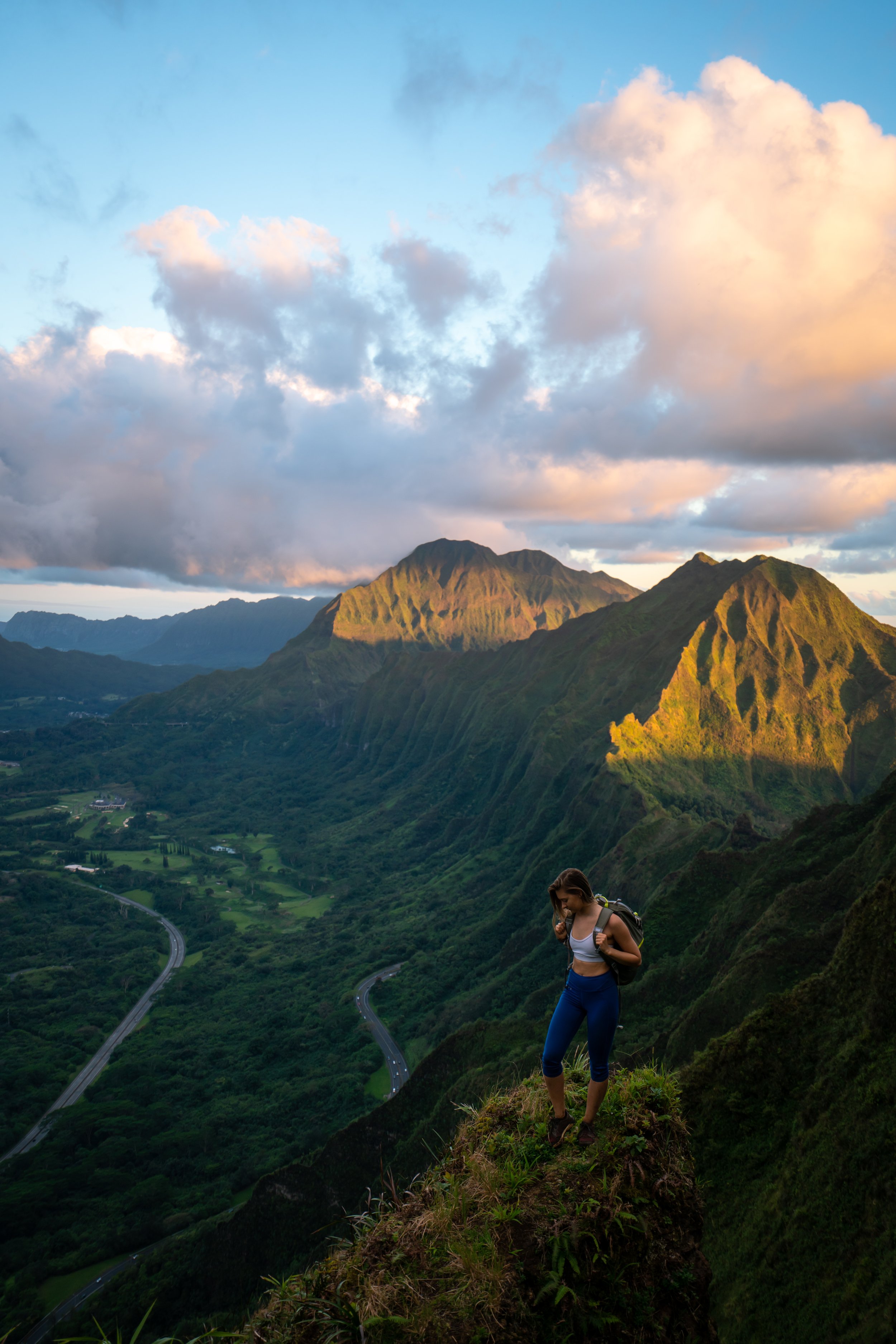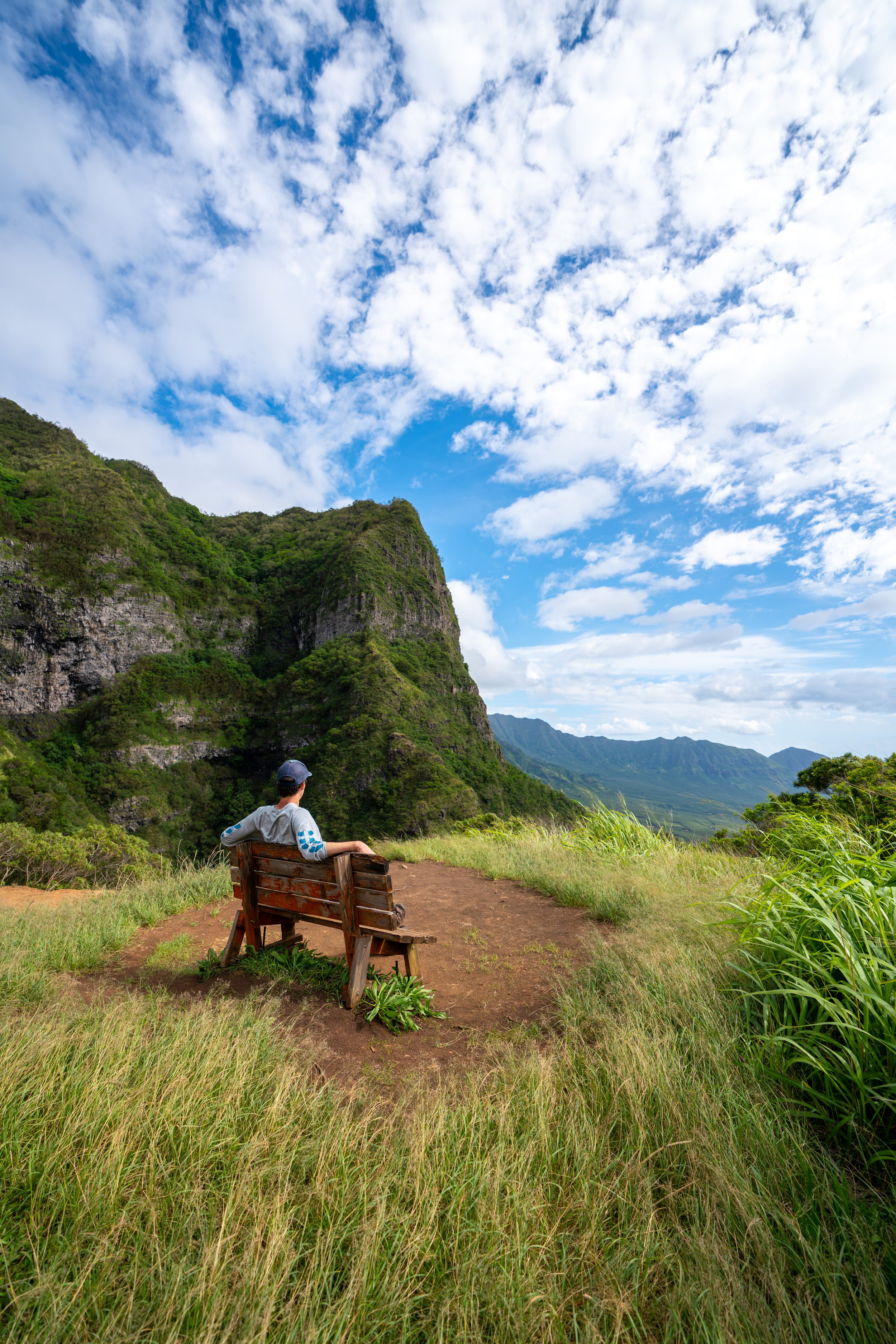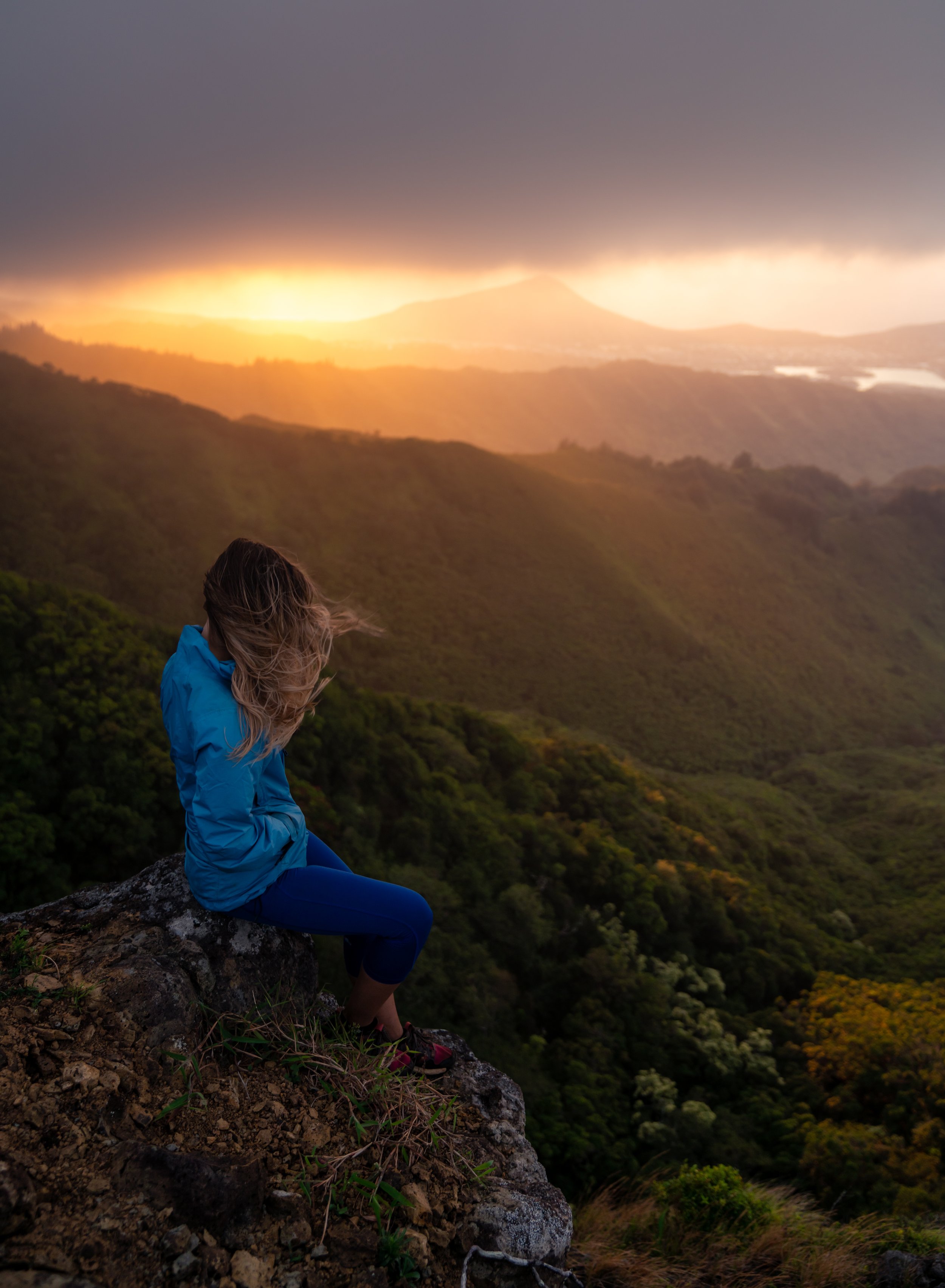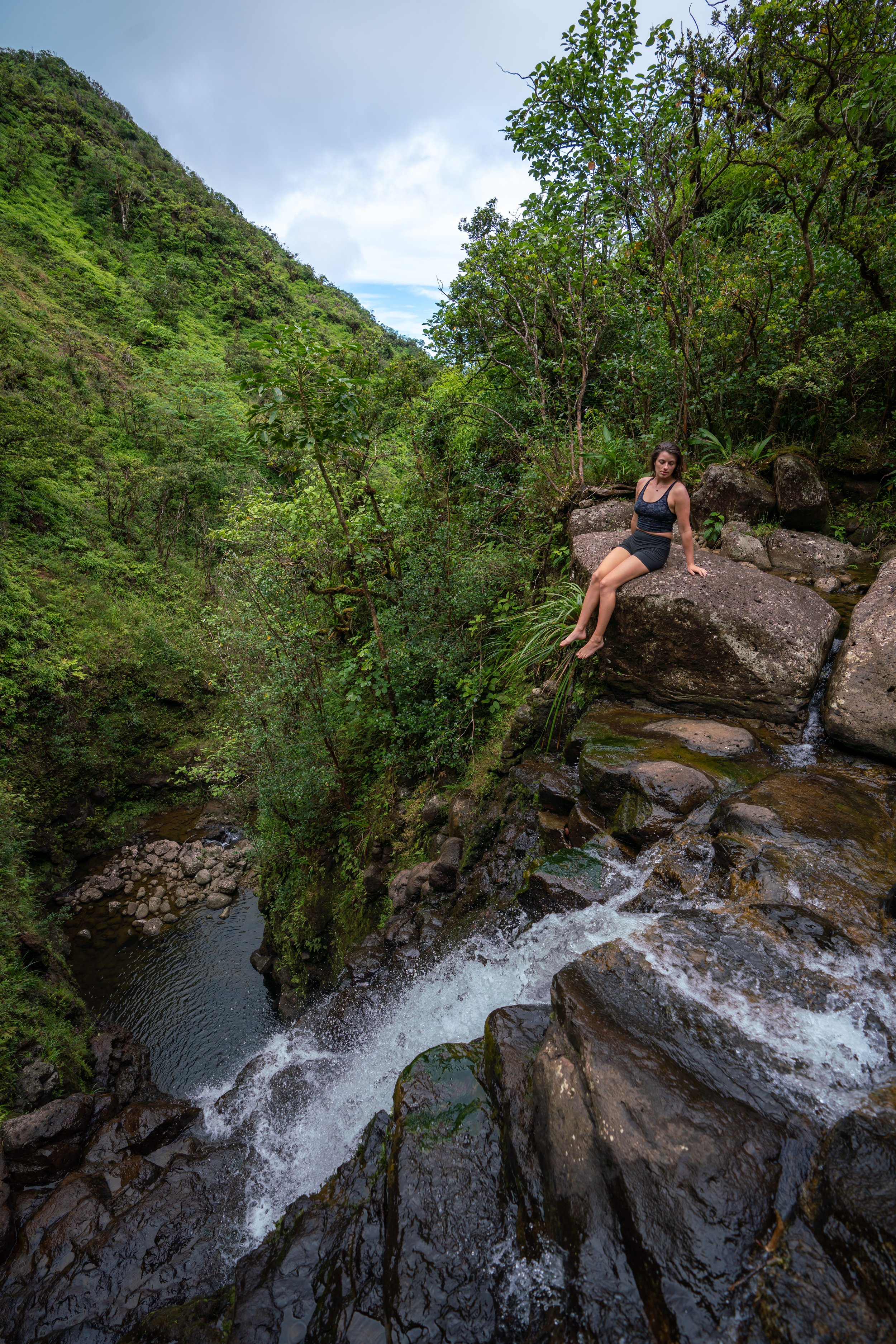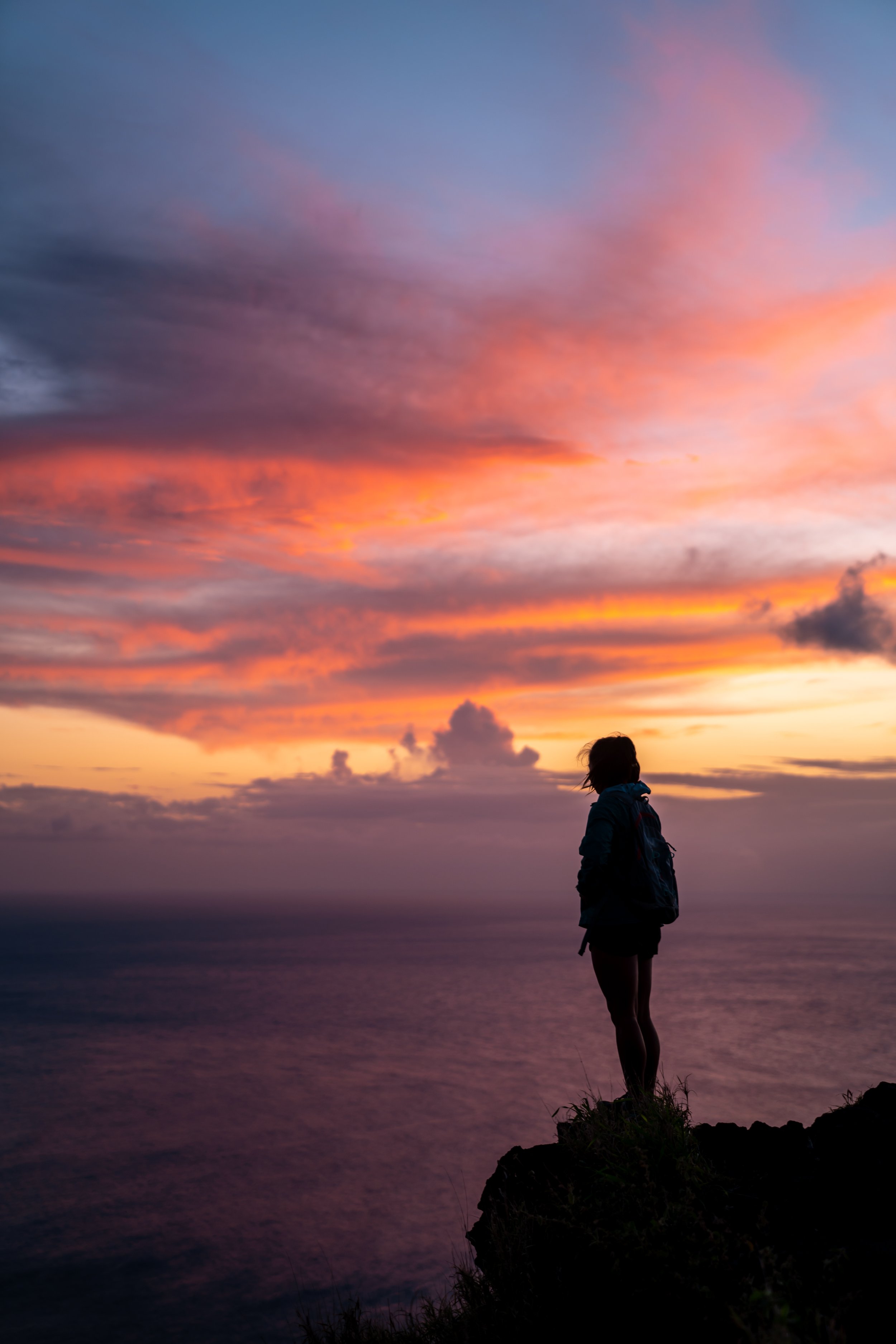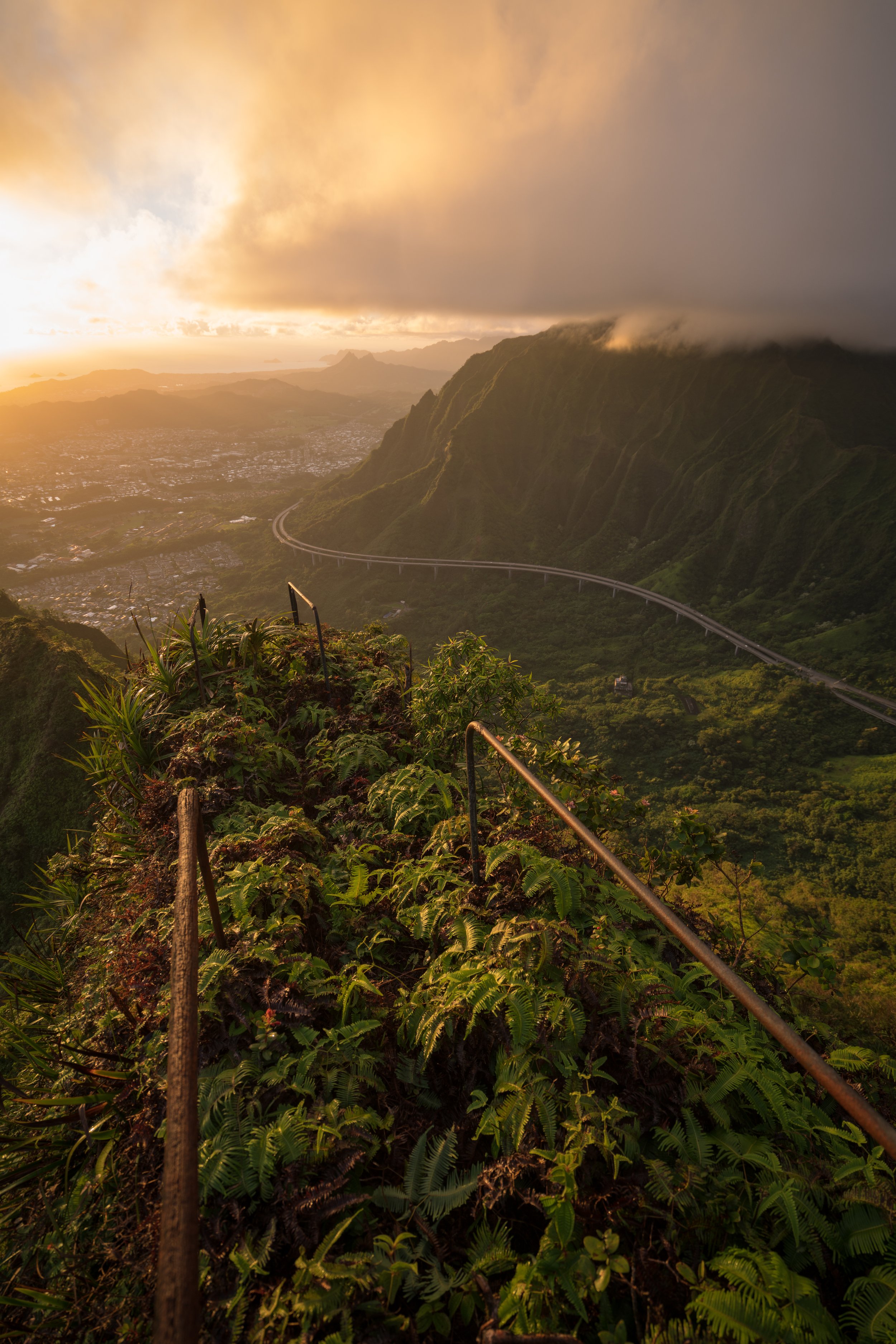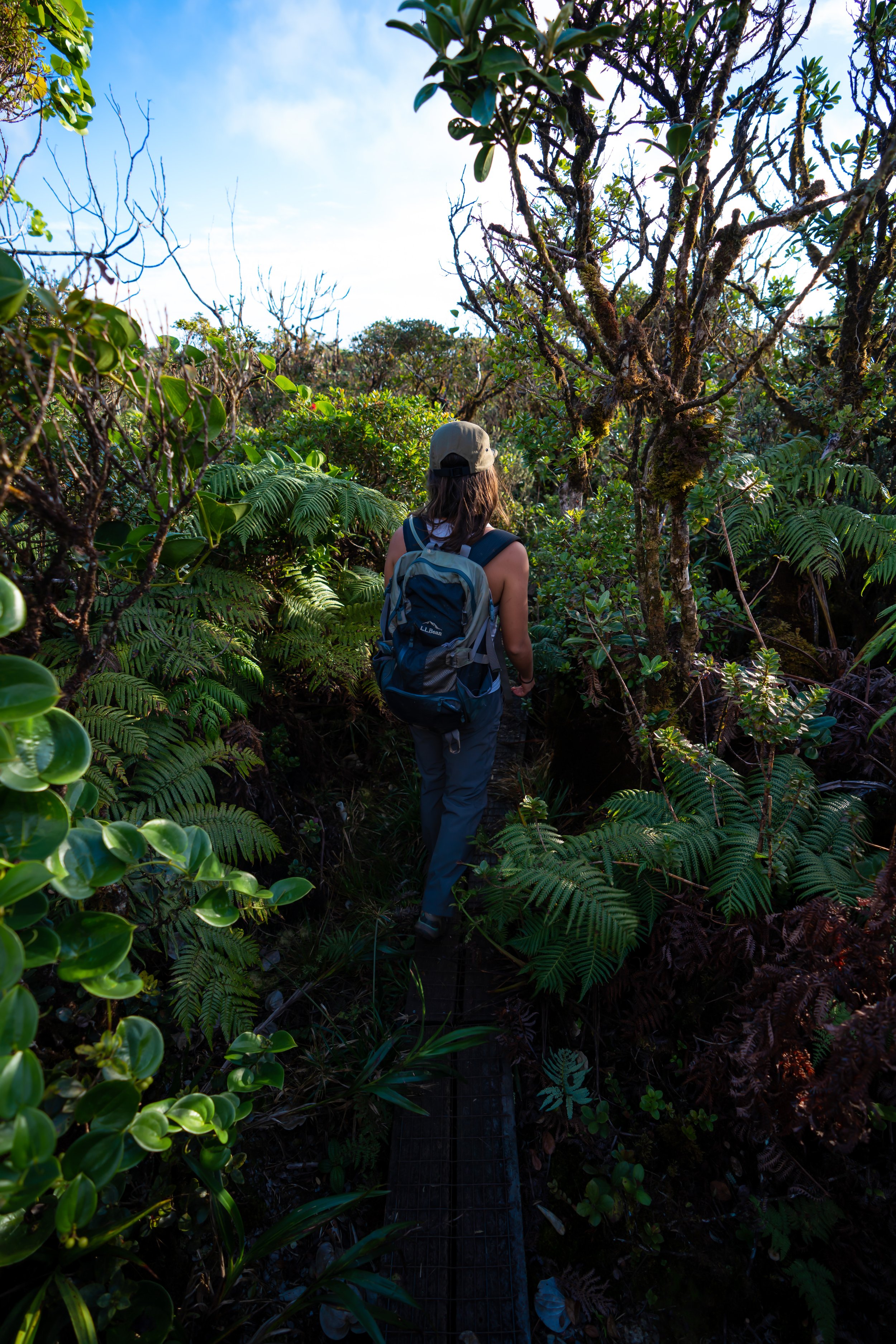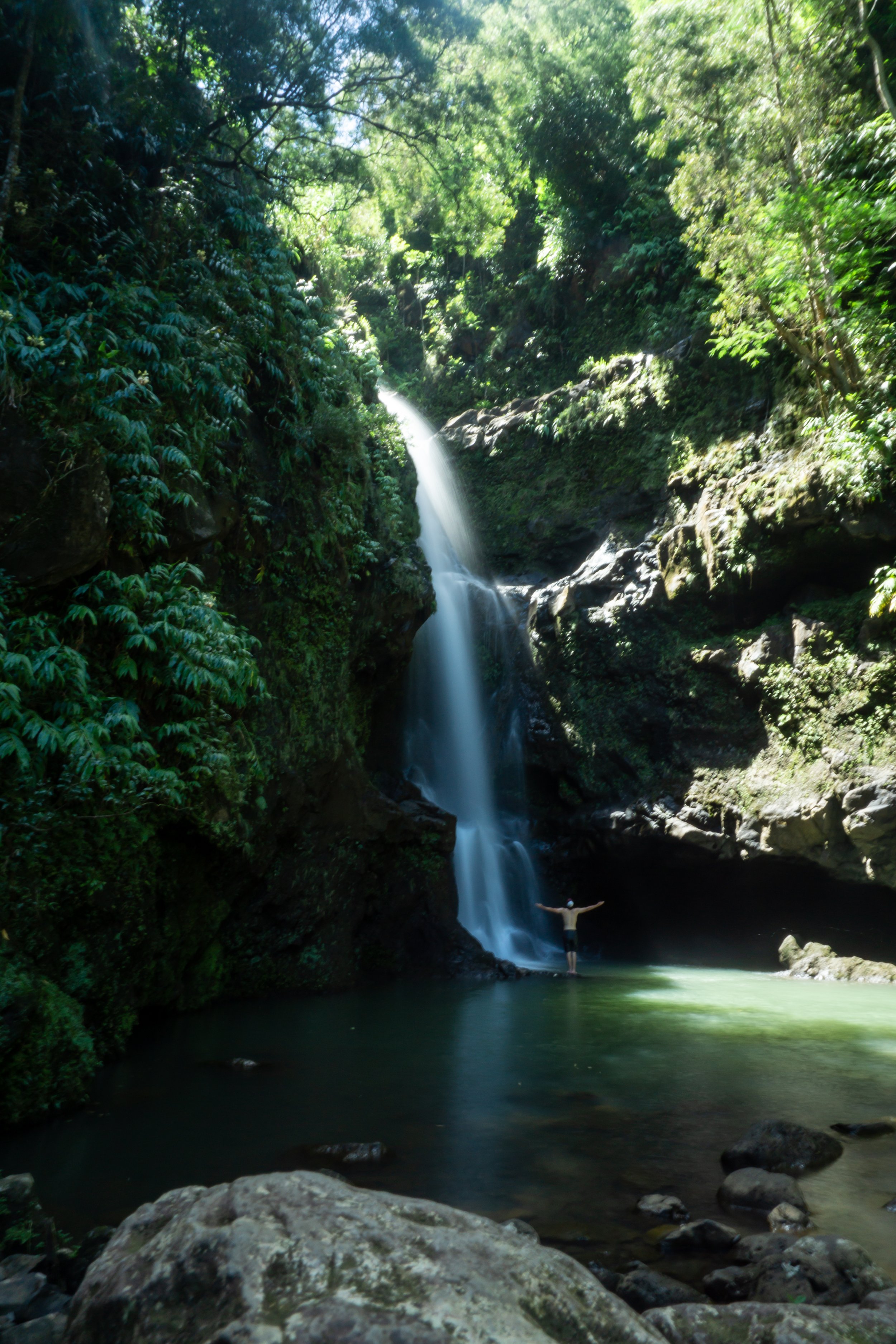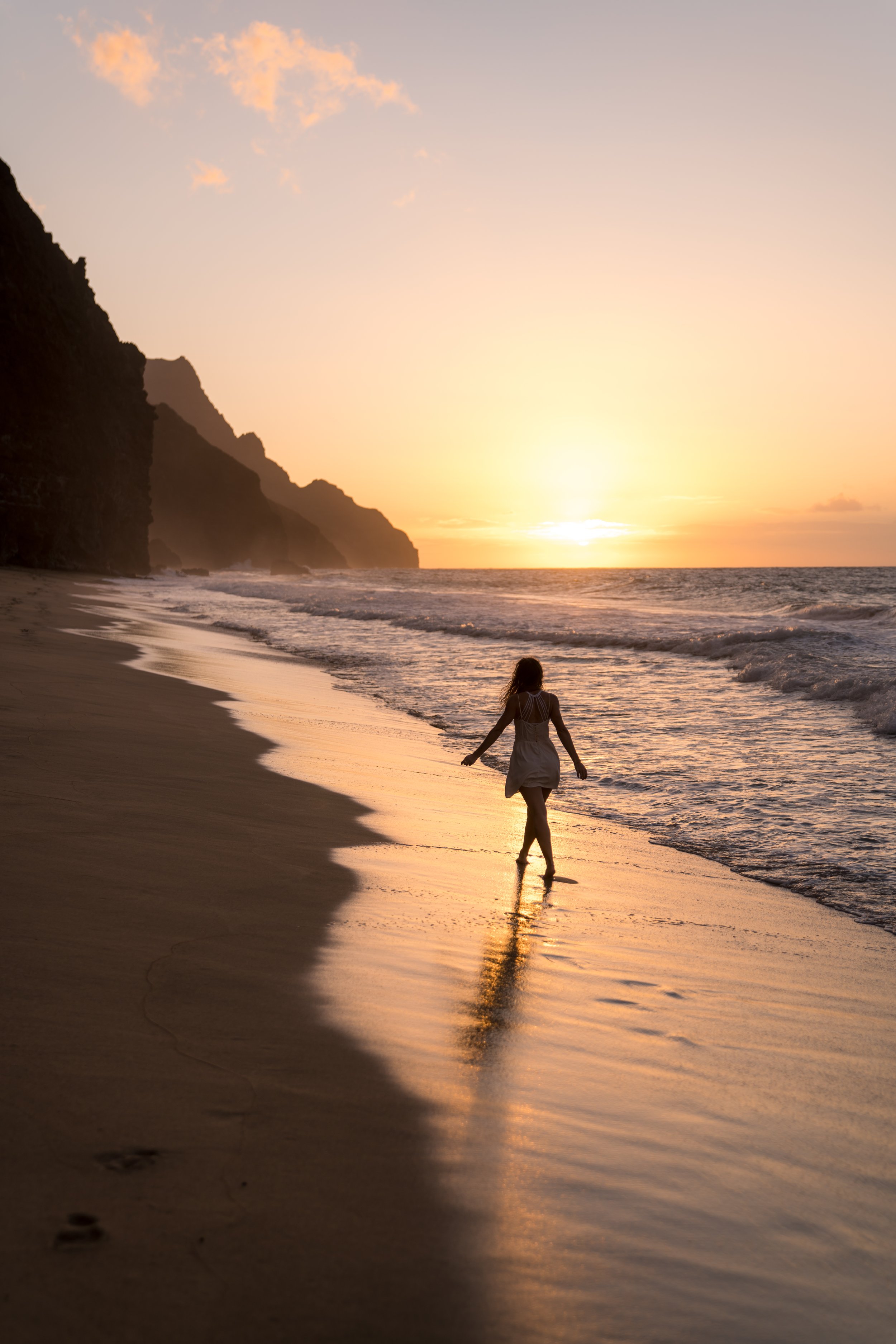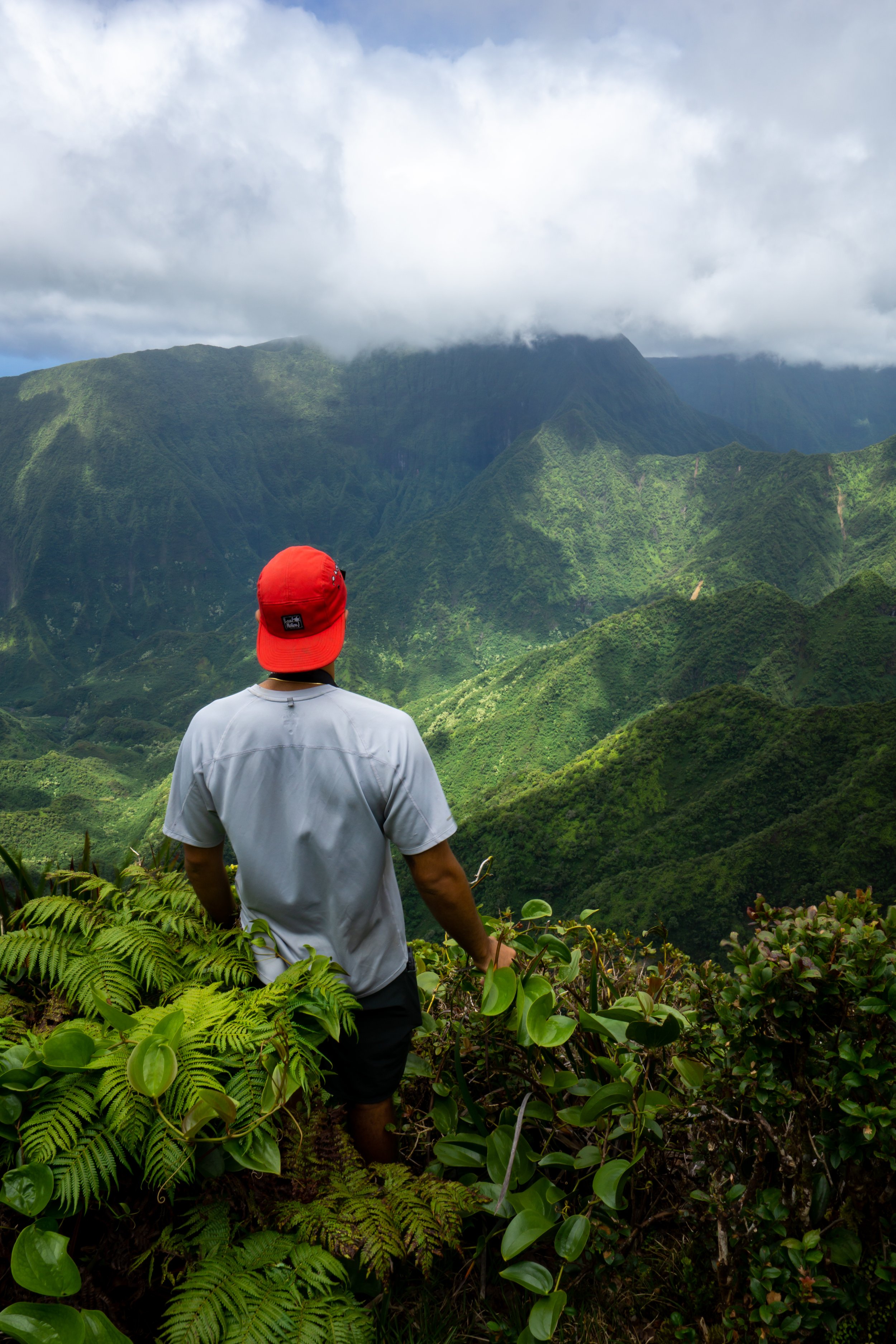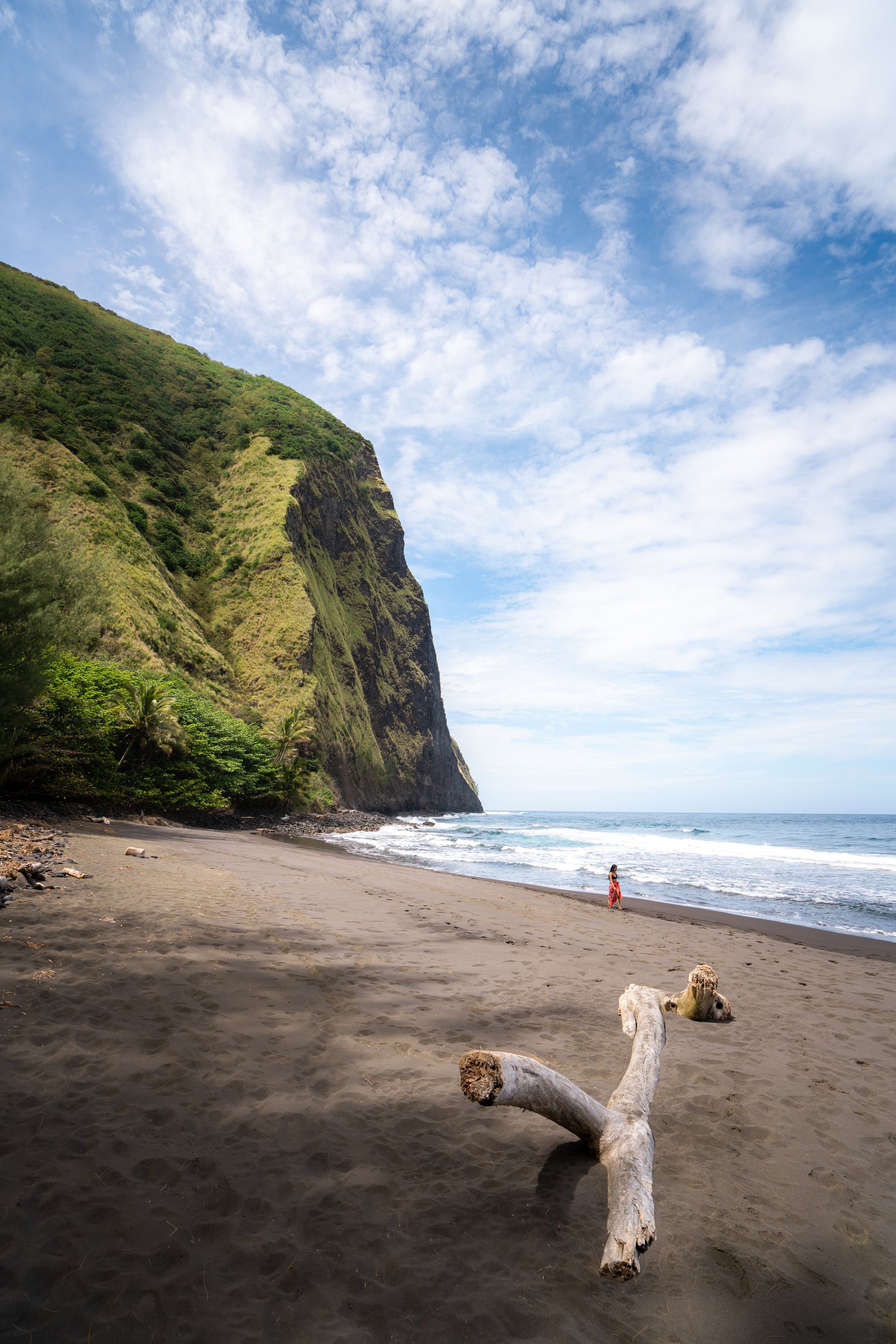Hiking the Wahiawā Hills Trail on Oʻahu, Hawaiʻi
Distance: 4.7 miles / 7.6 km
The Wahiawā Hills Trail in the central to northern Koʻolaus on Oʻahu is a remote loop trail on both sides of the Kaukonahua Stream that feels like a hidden gem compared to other, busier loop trails, like the ʻAiea Loop or even the Kaunala Loop Trail in Pūpūkea on Oʻahu’s North Shore.
However, compared to these others, it must be said that the Wahiawā Hills Trail truly lives up to its name, as the trail constantly gains and loses elevation over the course of the 2.0-mile (3.2 km) loop, which is why I typically think of the Wahiawā Hills as a great workout adventure above all else.
Nevertheless, there are beautiful views of the Kaukonahua Stream along the loop—not to mention that one of the best things to do on the Waihiawā Hills Trail is to hike to the upper stream crossing with tubes and ride down to the second crossing to exit the trail. Now, this is not something I recommend for first-time hikers, because it’s important to understand exactly where the trail crosses the stream the second time, but tubing from point to point is a fun alternative adventure that I’ve personally enjoyed a number of times!
Wahiawā Hills Trailhead Parking
Parking for the Wahiawā Hills Trail is located at the very end of California Avenue and the beginning of Puninoni Street, which is also the same parking area as the much more well-known Schofield-Waikāne Trail.
Google Maps Directions: Wahiawā Hills Trailhead
My Hawaiʻi Hiking Checklist
Osprey 3L Water Bladder - The Osprey 3L water bladder is the most universal hiking and backpacking water bladder on the market, and it’s my go-to because of the slide-off seal that allows it to be quickly filled from the top. Additionally, individual parts are easily replaceable, such as the bite valve.
Blister / Heel Protectors - I swear by these cheap, amazing heel protectors to prevent blisters for nearly every kind of hiking and backpacking that I do!
Black Diamond Headlamp - Personally, I recommend the Black Diamond Storm because it is one of the brightest, lightest, and longest-lasting headlamps on the market—and trust me, the weight-to-battery-life ratio really does matter!
Hiking / Trail Running Shoes - Depending on the type of trail, I prefer to use either the Keen Targhee for longer, more rugged hiking or the HOKA Zinal Trail-Running Shoe for lighter, less intense trails. In either case, both have been amazing to me for many years across countless environments, and both can be found in men’s and women’s sizes. - (Men’s Keen / Women’s Keen) (Men’s HOKA / Women’s HOKA)
Waterproof Rain Shell - You never know when it may rain, and I’ve learned over the years that a rain shell is far better than a rain jacket. By this, I mean that it’s best to have something that the water will roll right off of, which is why I recommend the Patagonia Torrentshell 3L available in both men’s and women’s sizes.
High SPF Sunscreen - Packing high-SPF sunscreen is a must for long days outside!
Hiking the Wahiawā Hills Trail
The Wahiawā Hills Trail begins at the very end of California Ave., which also serves as the trailhead for Schofield-Waikāne before it branches away about 0.1 miles (0.2 km) into the hike.
At this split, it doesn’t matter which way you go, as they both meet up shortly after.
Wahiawā Hills-Schofield-Waikāne Junction
After 0.1 miles (0.2 km), the Schofield-Waikāne and Wahiawā Hills Trail split.
That being said, go left to continue on the Wahiawā Hills Trail.
Read My Separate Post: Schofield-Waikāne Trail
Following the Schofield-Waikāne junction, the Wahiawā Hills Trail will begin descending steeply down to the first stream crossing.
At the first stream crossing, you may or may not find this little hidden waterfall flowing.
In either case, the Wahiawā Hills Loop continues on the far side.
Wahiawā Hills Loop Trail
The first photo below may look like a two-way split to the left and right for either side of the loop, but in reality, this is a three-way intersection and both sides of the loop are on the right (second photo). This is all to say, don’t go left.
In any case, you can either take the upper trail to hike the south side of the Wahiawā Hills Loop first or take the lower trail to hike the north side first.
Personally, I recommend the upper trail first because I find this half slightly more challenging, which is why I like to hike it first and return later on the easier trail.
Wahiawā Hills (South Loop)
The upper trail will follow a ridgeline until it steeply descends down to the North Fork of the Kaukonahua Stream, about 1.0 mile (1.6 km) ahead.
Eventually, the Wahiawā Hills Loop Trail will turn toward the stream and descend steeply about 300 ft. (91 m) down to the first Kaukonahua Stream crossing.
North Fork of the Kaukonahua Stream
When I visited after a rainy day prior, there was no avoiding wet shoes without going off-trail by a lot.
In any case, the Wahiawā Hills Trail should be visible on the far side of the stream.
After the Kaukonahua Stream crossing, the Wahiawā Hills Trail climbs about 450 ft. (137 m) to reach the north side of the loop.
Once of the first ridge, go left.
Wahiawā Hills (North Loop)
At the top of the climb out of the Kaukonahua Stream, stay to the left.
The trail may not be very obvious at first, but it soon becomes more defined.
At this split, go right to take the easier of the two trails.
Then, go left again, as the most important thing to remember is to keep the stream adjacent to you left-hand side.
Wahiawā Hills-Whitmore Junction
At the next split, go left.
The first photo below is the correct trail, and the second photo is the wrong trail that leads down to Whitmore Village.
After the Whitmore Village junction, keep the hillside on your left to continue on the correct trail.
The Wahiawā Hills Trail will soon start descending once again to cross back over the Kaukonahua Stream, but this time, the descent won’t be nearly as steep as the upper side of the loop.
North Fork of the Kaukonahua Stream
This climb back out on the lower half of the loop is much more mild than the prior.
This is not the initial loop junction from previously.
That being said, go right to hike back to the beginning of the Wahiawā Hills Loop.
Wahiawā Hills Loop Junction
This is the initial three-way split from the beginning.
Here, go left to hike back toward the waterfall and the first stream crossing.
Don’t forget about the last hill to hike back to the Schofield-Waikāne junction.
Notes
The Wahiawā Hills Trail is a community-managed trail, meaning that you may come across numerous downed trees or landslides, like the one here.
That being said, there’s typically an obvious route around any obstacles on the Wahiawā Hills Trail.
Native Plants on the Wahiawā Hills Trail
Generally speaking, the Wahiawā Hills Trail is a low-elevation trail, meaning that it is mostly dominated by non-native/ invasive species.
However, there are still a variety of native plants that you can expect to see such as ʻŌhiʻa lehua, Koa, Uluhe, ʻUkiʻuki, and Kōpiko from what I noticed.
If you would like to learn more about these and many other native Hawaiian plants from across the islands, I encourage you to check out my separate post linked below.
Read My Separate Post: Native Hawaiian Plant Guide
More Oʻahu Adventures
If you’re interested in reading about some more amazing Oʻahu adventures, check out my separate posts below!
Best Hotels & Restaurants in Waikīkī
If you’re trying to decided where to stay on Oʻahu, check out my top 10 list for the best resorts and restaurants in Waikīkī.
I break down what makes one hotel a better choice over another, so that you can find the best fit for your stay on the island.
Read My Separate Post: Best Waikīkī Hotels & Restaurants
HNL Airport-Hotel Shuttle
Prices on ride-share apps like Uber/ Lyft cannot beat the price of booking your hotel shuttle prior to arrival. I say this because there are additional fees for ride-share airport pick-ups at Honolulu Airport (HNL), which is why I recommend booking your transportation in advance using the options below.
Additionally, the last option below will go as far as the Ko ʻOlina Resorts on the West Side and Turtle Bay on Oʻahu’s North Shore!
Best Way to Book Rental Cars!
I travel quite a bit, and I know firsthand that finding a good rental car deal can be a challenge, but that’s why I recommend comparing all of your options with Discover Cars.
In short, Discover Cars is a well-known, reputable business that allows you to search for the best deal across companies, and they have the best full-refund cancellation policy I’ve ever seen, valid up to 72, or sometimes even 48, hours prior to your reservation!
Book Here: Discover Cars
Visiting Other Islands
If you are visiting Oʻahu or heading to another island, check out some of my personal recommendations for Oʻahu, Maui, Kauaʻi, Molokai, Lānaʻi, and Hawaiʻi Island (Big Island) in these separate posts.
If you’re trying to decide which island is right for your visit, check out my overview about each island in the post below.
Read My Separate Post: What is the Best Hawaiian Island to Visit?
What is the Best Time of Year to Visit Hawaiʻi?
The weather in Hawaiʻi can often appear to be warm and beautiful throughout the year, but in my experience, there is a lot more to consider when planning what time of year to visit the islands, such as what island you are considering, what sides of each island do you plan to stay, what activities are you most interested in, the wildlife, and countless other nuanced variables that can all impact the type of trip you can expect to have.
For these reasons, I highly recommend reading through my separate article to not only understand my thoughts regarding the best time of year to come to Hawaiʻi but also what you need to consider based on the time of year that you plan to visit.
Read My Separate Post: What is the Best Time of Year to Visit Hawaiʻi?
10 Best Tours & Excursions on Oʻahu
There are a lot of different tour options to choose from on Oʻahu, but to make it easier to decide, I made a list of my favorite tours because some things simply are better with a local guide!
Read My Separate Post: Best Tours on Oʻahu
Safety
All hikes in Hawaiʻi should not be compared to trails outside of the islands, and hikers should exercise due caution on every adventure, given that many are extremely dangerous.
By this, I mean that Hawaiʻi is known for hot, humid weather, steep, dramatic, and unstable cliffs, and flash floods, which can occur without warning. Therefore, it is important that you check the local forecast, understand the physical condition of your entire group, and pack sufficient food and water before attempting any adventure.
Disclaimer
All information provided on this blog is for informational purposes only and is not intended to be a substitute for information or advice from qualified professionals or managing agencies.
Noah Lang Photography LLC makes no representations or warranties regarding the accuracy or completeness of the information provided here, and readers should use their own discretion, judgement, and seek professional advice where it is appropriate.
Furthermore, Noah Lang Photography LLC shall not be held responsible for any injuries, lost individuals, or legal issues arising from the use of information provided on this website, and if applicable, the above safety disclaimer should be referenced to provide a generic overview of the risks involved.
All said, the content on this blog is for the sole use of Noah Lang Photography LLC, and unauthorized use or reproduction of this content is strictly prohibited.
Disclosure
This post is not sponsored.
However, some of the links in this post are affiliate links, which means that I may earn a small commission if a purchase is made through one of those links. This commission comes at no additional cost to you, and I only recommend products that I personally use and believe will add value to my readers. Thank you for your support, which enables me to continue creating more!
To read the full privacy policy, click here.
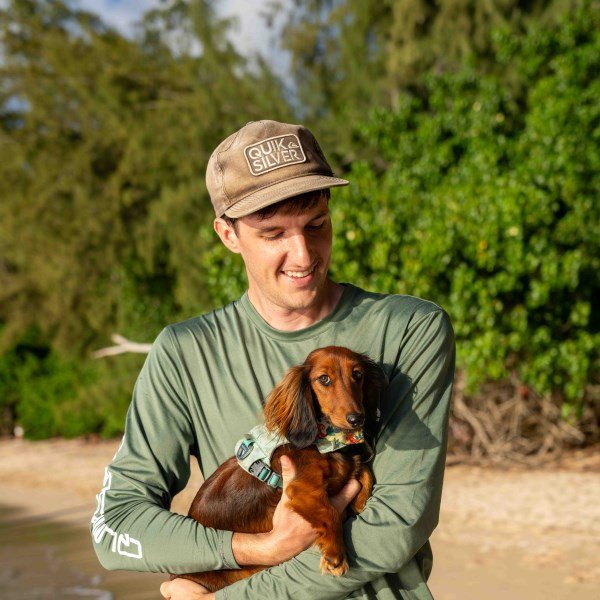
About This Blog
Noah Lang Photography, also known as @noahawaii, is 100% reader-supported!
I do not accept guest articles or sponsored content of any kind on my blog, which is why, if you enjoy the outdoor and travel content I create, please consider buying me a coffee!
I appreciate your support, which helps me continue to keep this blog alive!










